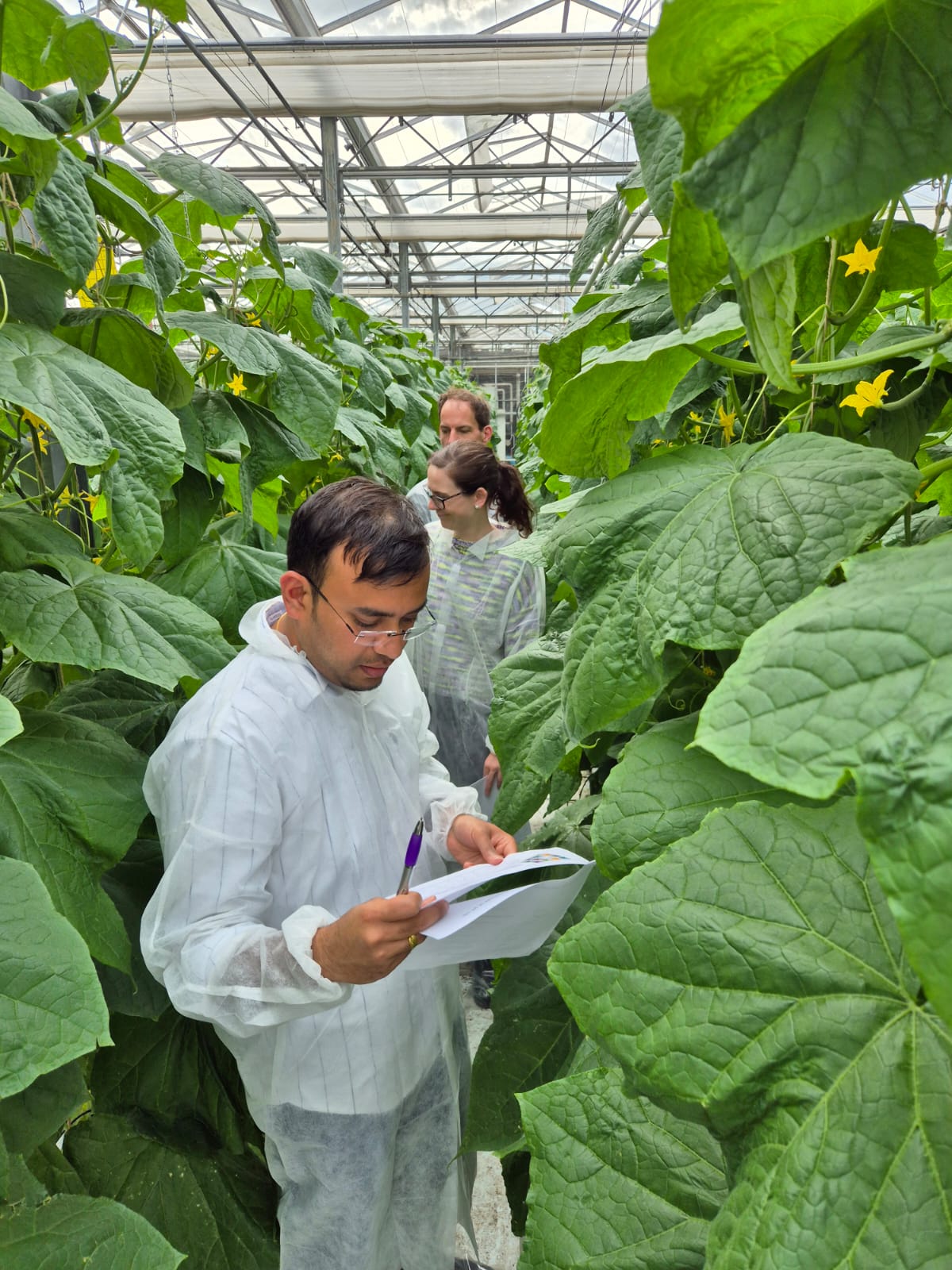

.png)
.png)
To feed and protect their crops.

We empower growers to adopt plasma technology as a natural, residue-free alternative to chemical fungicides.
We develop innovative, easy-to-use technology to produce Plasma Activated Water (PAW) on-site, using only water, air and electricity as inputs.
Plasma Activated Water
deployed on cucumber plants
.jpg)
Fungal diseases threaten crops, and chemical fungicides, while effective, leave behind toxic residues, pollute water, degrade soil, and harm biodiversity. Over 80% of Europeans now carry pesticide traces in their blood.
Sustainable fungicides with high effectiveness.
That are cost competitive.
And are easily integrated into their workflow.
.jpg)
It has the power to clean crops and feed them at the same time. What if farmers could harness that power on site and on demand? VitalFluid makes it possible.
.png)

.png)

Our team has developed a robust machine capable of isolating and stabilizing the reactive nitrogen and oxygen components in Plasma Activated Water, effectively defending the plant against fungal diseases, while leaving no harmful residues.
With 30+ successful trials across diverse crops—like strawberries, cucumbers, and apples—we’ve proven Plasma Activated Water’s ability to combat mildew, fusarium and venturia with high efficacy and crop safety.
.jpg)
The best system for greenhouse, orchard and open field growers.
VitalFluid was founded when Paul Leenders and Polo van Ooij researched Plasma Activated Water at Eindhoven University. Today we have a strong team of 25 people that is capable of translating fundamental knowledge of plasma into full scale commercial applications.



.jpg)



.jpg)



.jpg)
.jpg)

.jpg)

.jpg)

.jpg)

.jpg)

.jpg)


We continuously welcome new partners that join VitalFluid on our journey.
For inquiries, reach out to info@vitalfluid.com